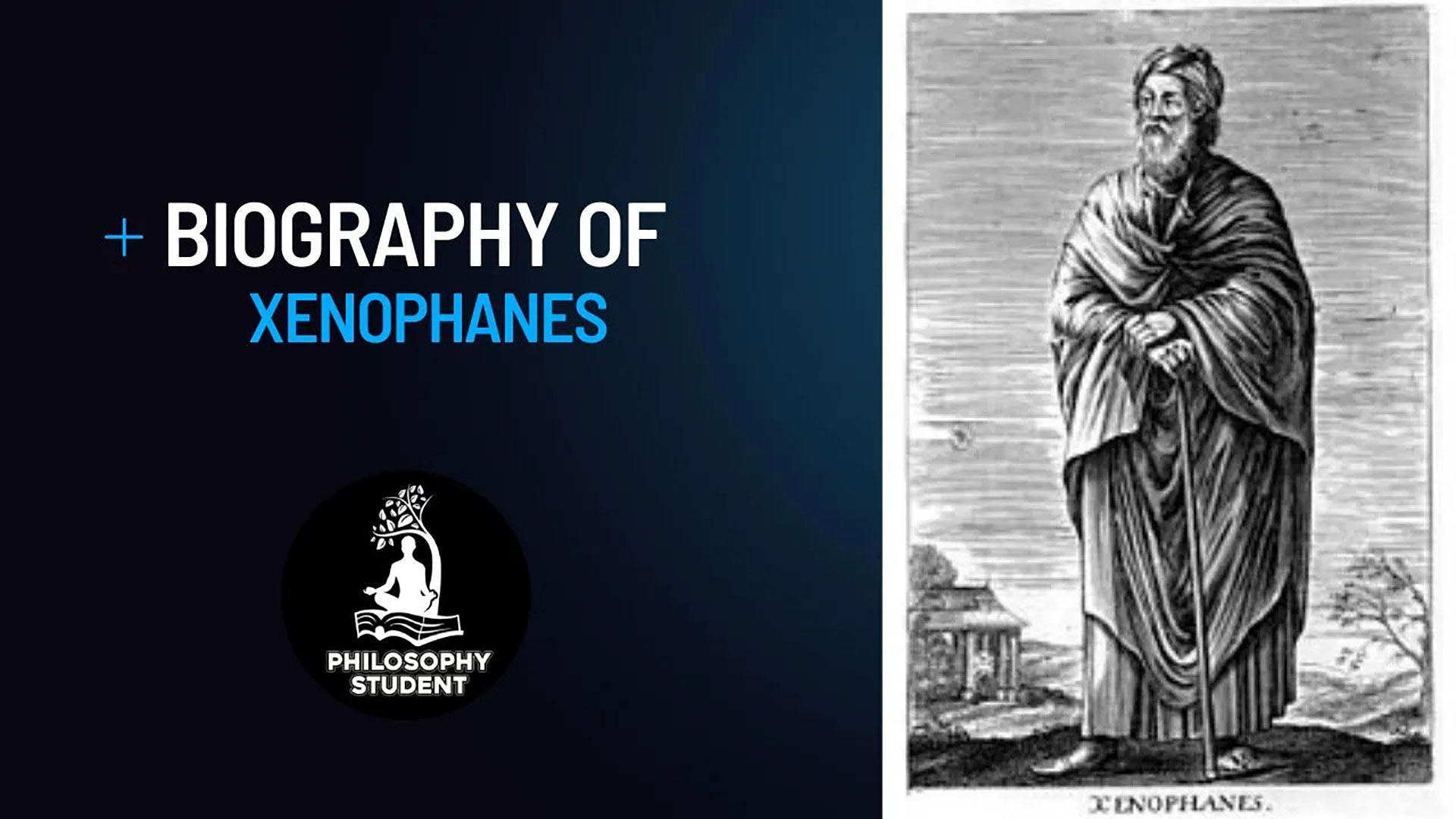What is known of his life comes from Diogenes Laertius, who reported that Xenophanes had been born in Colophon and was active during the sixtieth Olympiad—540–537 BC. For some reason, he was “banished from his native city” and thus settled in Elea (in Italy), also living for a time in Zancle and Catana (in modern Sicily). His verse (which survives almost exclusively in attributed fragments) attacked both Hesiod and Homer for their anthropomorphism of the gods.
It is believed that Xenophanes was the first Greek philosopher to offer some systematic account of the nature of divinity and also to adumbrate monotheism in a fragment that mentions “One god greatest among gods and men, / Not at all like mortals in body or in thought.”
Xenophanes also offered social criticism, making remarks on proper conduct at symposia and what constitutes personal excellence. He also discusses human foibles. He counsels moderation in life, condemns the pursuit of luxuries, and criticizes the honor accorded wealth and power versus the scant recognition virtue commands. His forays into epistemology emphasize the subjectivity of human taste. “If god had not made yellow honey,” he wrote, “[people] would think that figs were far sweeter.” Thus, judgment is subjective, limited and conditioned by personal experience, and knowledge therefore uncertain.
Xenophanes made several observations relevant to natural philosophy and has been credited by some with viewing the earth as the archê (“first principle”) of all things, with describing the sea as a container of many mixtures, and with observing that the soul is composed of earth and water. In short, to him is ascribed a “two-substance theory” of metaphysics, in which all things are either earth, or water, or earth variously combined with water. Xenophanes vividly describes the sea as … the source of water and of wind, For without the great sea, there would be no wind Nor streams of rivers, nor rainwater from on high But the great sea is the begetter of clouds, winds, and rivers.
He saw in clouds an explanation the origin of the sun and the stars (burning clouds) and the moon (a compressed cloud).Fragments attributed to Xenophanes pose such epistemological questions as
“How much can any mortal being hope to know?”
“Does truth come to us through our own efforts or by divine revelation?”
“What role do our sense faculties play in the acquisition of knowledge?”
Xenophanes wrote that “no man has seen nor will there be anyone who knows about the gods and what I say about all things” and goes on to observe, “But opinion is allotted to all.” He does not, however, condemn “opinion,” which he sees as essentially better than no knowledge at all and, in fact, worthy of being “believed as like the realities…” The philosopher died about 475 BC.




































